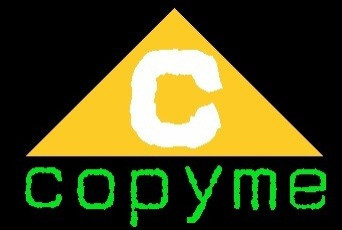A Pirate Walks Into a Church: Kopimism and the Sacred Act of File-Sharing

For the Missionary Church of Kopimism, which holds the computer commands CTRL+C and CTRL+V as sacred symbols, Internet is the altar, information is holy and copying is a sacrament.
When the Swedish government recognized Kopimism - founded by 19-year-old philosophy student Isak Gerson - as a religion earlier this year, many thought it was a practical joke.
But Kopimism now has spread its operations worldwide with followers in nations including the U.S., the U.K., France, Russia, Japan, Australia and New Zealand, though none of these nations have recognized it as a religion.
The formalities of achieving this (register as religion) seem impossible due to the lack of knowledge by the countries' government departments, Terry Jones, Church operator of New Zealand, told the International Business Times. We have spoken to many different departments, from the Department of Labor to the Department of Internal Affairs - each agency replies with a simple answer of 'Sorry we don't know how you would do that,' he said.
If the Church manages to register as a religion, the digital pirates could demand immunity under the constitutional right of freedom of religion, widely recognized as a fundamental human right. However, the Church operators assert that the Kopimism isn't aimed at claiming immunity from prosecution.
We do not exist simply as an excuse for people to break the law - it is insulting to our faith to insinuate this, Christopher Carmean, the U.S. Kopimism Church operator, told the International Business Times. This movement is about the celebration of data as an eternal, external, and fundamental basis for existence, and we concern ourselves primarily with the multiplication and sharing of data as an acknowledgement of these foundational beliefs, he said.
Internet pirates have been grappling with rough seas and bad weather, since the beginning of 2012. When MegaUpload capsized, a few major BitTorrent players contemplated shutdown, with BTjunkie actually going ahead with a closure.
Speculation is still rife that the anti-piracy regime will turn more aggressive, and that this could be the end of free file-sharing. However, Kopimists disagree, completely.
I don't think that it's getting stronger, instead I feel that they are getting more media attention and instead of tackling piracy they are making examples of larger sites (like MegaUpload), Jones said.
Even if BT sites disappeared, which I doubt that they will, people will always find a way to conduct their holy rites and rituals electronically, Carmean said.
In the U.S., Kopimism has registered with the state of Illinois as a church - a 503(c) organization. However, they haven't started the process of seeking federal recognition.
Despite criticism from several quarters for parodying mainstream religions, Kopimists remain unfazed: Not to belittle mainstream religion, but why is it okay to worship some bearded guy on a throne in the sky, but not this?, an anonymous Kopimist told The Star recently.
© Copyright IBTimes 2024. All rights reserved.






















